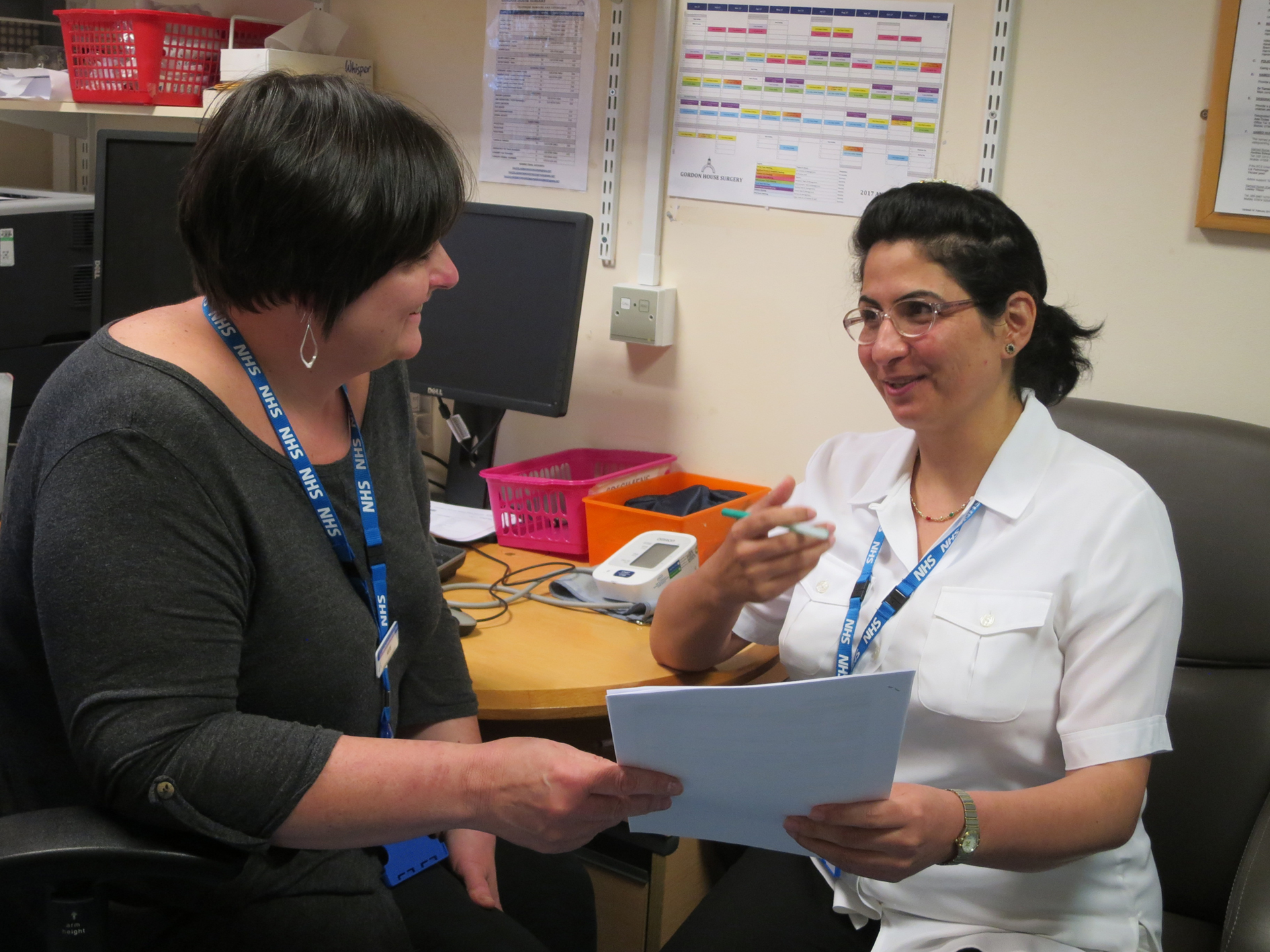Support for Registration with Health Professional Bodies

Building Bridges’ comprehensive support for refugees on a registration pathway includes:
- Free English language classes to help clients attain the necessary level to pass the OET and IELTS exams
- Providing accurate up to date information on pathways to registration
- Funding registration exams, exam preparation courses and registration fees
- Scrutinising clients’ relevant documents for assessment
- Submitting documents and liaising with registration officers
- Supporting clients to write and submit registration applications
- Advocating on behalf of clients with challenging cases including the General Medical Council, General Dental Council, Nursing and Midwifery Council, General Pharmaceutical Council, Health Care Professions Council
- Undertaking research into overseas qualifications and registration systems.
Refugee professions
PLAB 1, a written exam made up of multiple-choice questions which tests doctor’s ability to apply their knowledge for the care of patients.
PLAB 2, an objective structured clinical exam reflecting real life settings including a mock consultation or an acute ward.
Through the Building Bridges programme we help doctors to:
- Refresh medical knowledge and skills before taking the PLAB exam.
- Prepare for providing patient centered care by enhancing language and communication skills (active listening, questioning, explaining and advising).
- Join the Professional Development Group for refugee doctors, weekly training sessions including role-plays practice, case and topic discussions, situational judgment discussion, British Medical Journal discussions, presentations and insights into the UK medical culture. Training is facilitated by the tutors with the NHS experience, retired and active general practitioners (GPs) and clinicians.
- Develop and maintain a strong peer-to-peer network and mentoring.
- Access financial support to cover the cost of the preparation courses, exam and professional registration fees, childcare and travel expenses.
To work as a nurse or midwife in the UK those with overseas qualifications must apply to join the register of the Nursing and Midwifery Council (NMC). The NMC requires applicants to demonstrate that they are capable of practising safely and effectively. Following the OET exam nurses will be asked to take the following exams
- Computer Based Test (CBT) — tests of numeracy, human disease, clinical knowledge, law and ethics and health and safety
- Objective Structured Clinical Exam (OSCE) — tests practical clinical skills
Through Building Bridges we help nurses and midwives to:
- Develop a realistic short and long term career plan
- Find work as healthcare support assistant roles while studying for OET exam
- Fund NMC exams
- Support applications into registered nursing posts
ORE 1 — computer based test of dental science, human disease, clinical dentistry, law and ethics and health and safety.
ORE 2 — tests practical clinical skills
Many refugee dentists joining Building Bridges initially chose to train and work as a registered Dental nurse during the period in which they are studying for the IELTS exam. A few go on to qualify as registered Dental Hygienists.
Through Building Bridges we help dentists to:
- Develop a realistic short and long term career plan
- Find work as a trainee Dental nurse
- Fund Dental nurse training
Through Building Bridges we help pharmacist to:
- Develop a realistic short and long term career plans
- Find work as Pharmacy assistant roles while studying for OET exam
- Contribute towards funding OSPAP Conversion courses
- Support steps through OSPAP into registered Pharmacy roles
Through Building Bridges we helps allied health professionals to:
- Develop a realistic short and long term career plans
- Find work as assistant roles in hospitals while studying for ILETS exam
- Contribute towards funding registration routes
- Advise and guide on the registration process